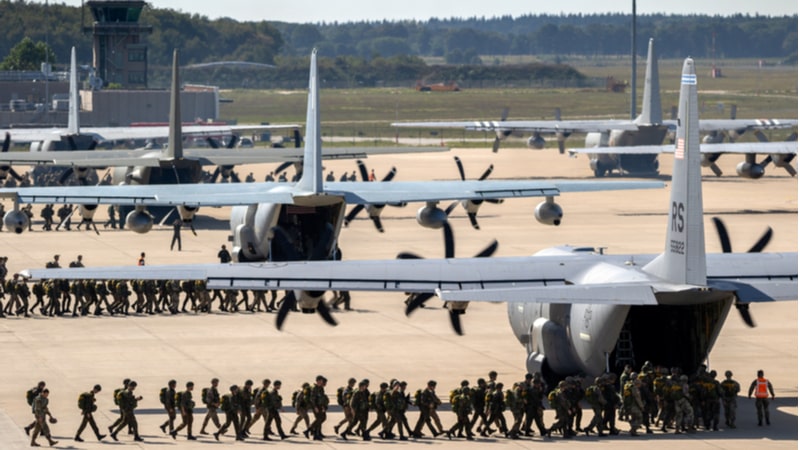
The United States Air Force (USAF) has released a draft version of its Chief Information Officer (CIO) Public Strategy that outlines the service branch’s IT priorities through fiscal years 2023 to 2028.
The draft outline focuses on several primary lines of effort including increased cloud service adoption, stronger cybersecurity, workforce issues, improvements to the IT services portfolio, and better use of data and artificial intelligence (AI) tech.
Among the main goals the new strategy is implementing a secure “strategic environment” that will aim to provide unity between different systems, professionals, and technologies at the department aims to work in a more synchronized fashion.
Another aspect of the strategy looks to create a “strategic alignment” that aims to adopt a series of values which “provide the foundation for a secure, digital, and data centric air & space force on which our competitive advantage relies.”
“Our Lines of Effort (LOE) were chosen because they directly address the needs of the emerging strategic and technological environment in which we operate,” the strategy document states. “Together, these LOEs provide the digital backbone which will enable the Air and Space Forces to improve both user experience & warfighter effectiveness today and achieve competitive advantage tomorrow,” it says.
“Our digital foundation must be rock-solid: it is used to conduct warfighting, collect and pass data, leverage artificial intelligence, develop standards and manage risk for all our mission and business IT systems,” the strategy says.
“Partnership with the enterprise and industry is critical to getting this right, recognizing that everything we do is increasingly interconnected,” it continues.
“We strive to be outcome-driven, and hope that the LOEs will resonate with our teammates as we work together to build actionable objectives. Our efforts need to be well-coordinated across the DAF [Department of the Air Force] and always informed by warfighter requirements,” the strategy says. “In the near future, we must be ready to execute kill chains in seconds rather than hours.”
Primary Lines of Effort
The strategy document’s primary lines of effort include:
- Increased cloud service adoption aiming at “globally distributed cloud computing [that] enables rapid deployment and strong performance of business and mission capabilities from the enterprise to the edge, including disconnected ops.” Also high on the list are “an effective hybrid cloud ecosystem [that] improves cybersecurity and resiliency, enables rapid data sharing, and drives simplicity and transparency for operators,” along with reductions in “stove piped data centers and legacy applications.”
- Cybersecurity improvements that “create and continuously enhance a secure and resilient digital environment that protects our data and critical assets from adversaries,” designing systems “up front with threat-informed cybersecurity in mind,” and adopting cybersecurity practices “that improve cyber posture, provide a transparent view of cyber risk, and enable rapid deployment and update of capabilities.”
- Workforce policies that “empower and equip talent, incentivize performance, and ensure every person has a chance to succeed at the part of our mission where they can drive the most impact and take pride in their contribution,” along with providing new talent management and training programs.
- Managing the IT portfolio in line with the goals of “spending every penny to deliver capabilities our warfighters need for mission success,” and “sunsetting expensive, redundant capabilities and shrewdly negotiating enterprise agreements that balance cost, consumability, and enable choice for high performing teams.”
- Creating systems upon which Air Force and Space Force personnel “can rely on their networks, devices, and the digital tools and data they need for mission success with 99.99+% consistency,” and that give service leaders at all levels are confidence that “these services will be there when they need them and provide the capability they need to win.”
- On the data front, giving personnel easy access to “the data they need to make decisions and take action at all levels,” and designing automation, analytics, and artificial intelligence “into all systems from the start.”
